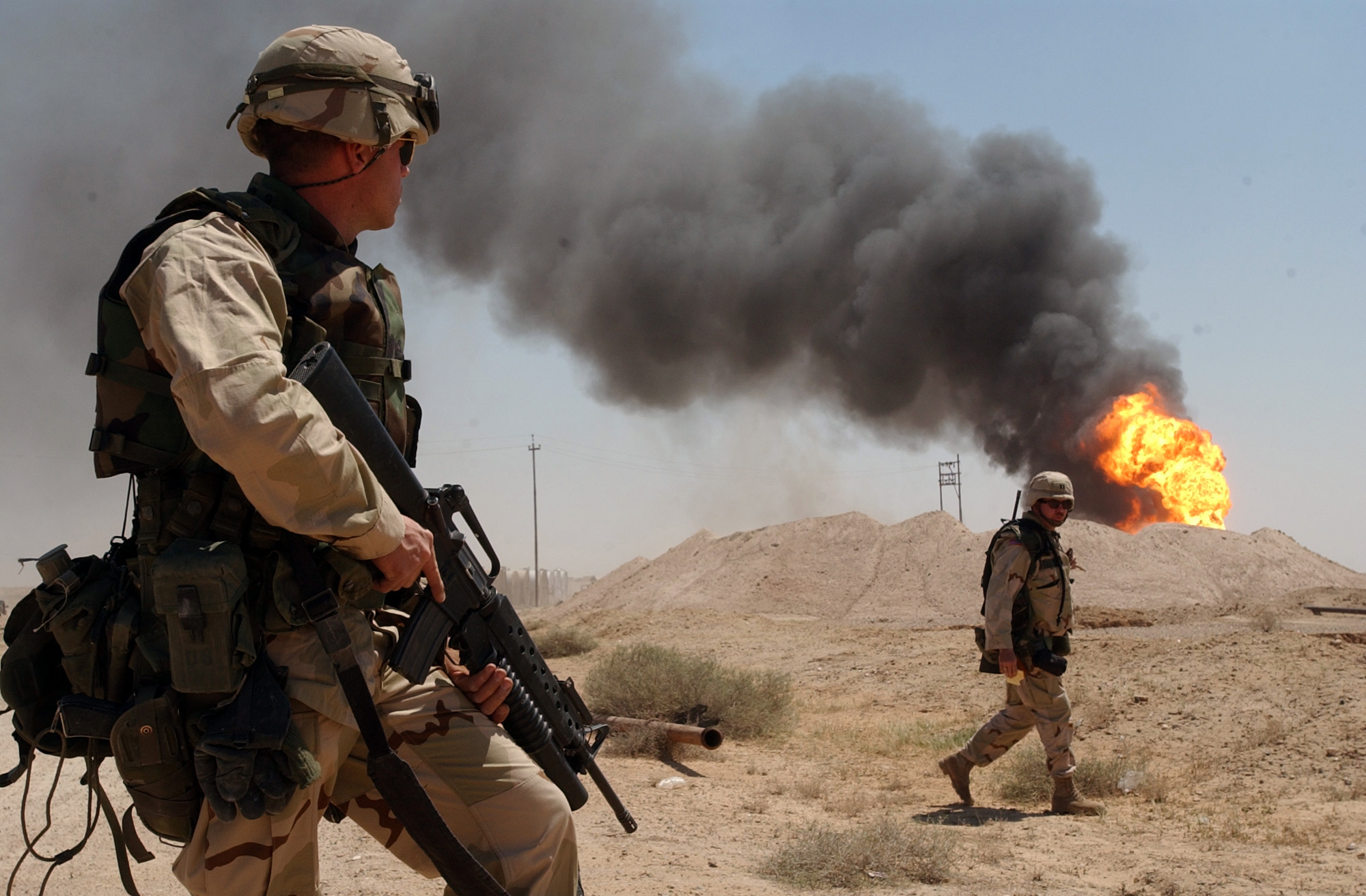
The Iraq War casts a shadow over future U.S. intervention in the Middle East
 After 9/11, the U.S. was more unpopular in the Middle East than in any other part of the world. While this is largely no longer true today, it doesn’t necessarily imply that U.S.-Middle Eastern relations have developed smoothly, as with Iran and the U.S. Tensions, however, are not entirely without justification, as the U.S. has a decades-long history of involvement in the Middle East. From Lebanon to Baghdad, the U.S. hasn’t entirely learned its lesson when it comes to the consequences of intervention — which are devastating and long-term.
After 9/11, the U.S. was more unpopular in the Middle East than in any other part of the world. While this is largely no longer true today, it doesn’t necessarily imply that U.S.-Middle Eastern relations have developed smoothly, as with Iran and the U.S. Tensions, however, are not entirely without justification, as the U.S. has a decades-long history of involvement in the Middle East. From Lebanon to Baghdad, the U.S. hasn’t entirely learned its lesson when it comes to the consequences of intervention — which are devastating and long-term.
The U.S. invaded Iraq as an immediate response to the attacks on September 11th, with the intent of deposing a violent dictator, Saddam Hussein. The goal was to seize his alleged stocks of weapons of mass destruction while simultaneously affording the nation a democratic government. Rather than a successful democracy, the result of the Iraq War was an outrageous death toll of Iraqi citizens, a prevalence of militias and an unsettled population numbering in the thousands. Devastation, as is the usual outcome of war, did not exclude Iraq. Iraq had no role in 9/11 yet was forced to pay a heavy price for an attack in which its people had no involvement.
Addressing accusations of hypocrisy only furthers the controversy over U.S. intervention. The U.S. assisted Hussein in seizing power in 1963. In the ‘80s, the U.S. backed Hussein in the Iran-Iraq war, supplying arms, money, satellite intelligence and chemical and bio-weaponry. He is not the first dictator whom the U.S. has propped up. What, then, affords the U.S. government the right to delegate who leads and who falls? Many wonder whether these interests were backed by the patriotic love of democracy or an economic dependence on oil. Much of the War on Terror is perceived by Middle Easterners as the latter. But regardless of intent, the result of U.S. intervention was catastrophic.
What, then, are Iraqis to think about a nation that punished them for an act of terror that they didn’t commit, whose cache of weapons and spent, depleted uranium bullets ended up in the hands of ISIS, a terrorist group that would later be known as the world’s most dangerous? It’s not unreasonable then that U.S.-Middle East relations would be riddled with tension. After all, Iraq is not the only country that has suffered the consequence of U.S. assistance. But what has the U.S. learned from years of unsuccessful intervention? Apparently, very little.
More recently, chemical attacks conducted under Bashar al-Assad’s regime against Syrian civilians warranted international outcry. As such, the U.S., UK and France responded with airstrikes intended to take out a sizable figure of Assad’s weapons supply while also deterring further use of inhumane military practices. Reports following the attacks labeled the mission a “success,” while other officials stated that the strike would delay Syria’s development of chemical weapons by years. These measures in no way successfully destroyed the entirety of the government’s chemical weapons supply, nor will it deter further use of military violence — this incident was played out similarly about a year ago. U.S. reports also failed to note the number of civilian casualties, while some Syrians claim four people died. Damascus, a city of 1.7 million, was attacked at night, without warning. Now imagine if this occurred on U.S. soil. Would that not instigate another version of the Iraq War? The answer to this may be that the U.S. air strikes were committed in response to the atrocities of this Middle Eastern government. But was that not also their justification for the Iraq War — which, as we now know, was an utter failure?
Air strikes are a signature battle strategy in overseas war, and they usually guarantee casualties. Part of the post-airstrike reports reveal that the result is the death of civilians ranging from lesser numbers to the near-hundreds, amounting to a total that’s still growing. While a civilian life in exchange for that of a terrorist might be an easy trade-off for U.S. officials, it isn’t for those who must mourn a daughter, mother, wife or other loved ones.
The U.S. hasn’t fought a war on American soil since the Civil War, so when we engage in war today, it isn’t necessarily of much consequence for those at home. But those abroad pay a heavy price for U.S military presence. When we intervene, it may give some a sense of satisfaction — that we’re doing enough to help others — but we fail to recognize that much of our assistance is unwanted. Intervention can and has rendered whole cities devastated. But this is not a reality that Americans have had to live with; it’s one that Iraqi citizens had to address and solve.
After decades of interference in the Middle East, it’s abundantly clear that U.S. foothold in the region fails to assist anyone but rather brews Middle Eastern hatred for the U.S., perpetuating the cycle of violence, terror and death. If history has taught us anything, it’s that colonialism, imperialism and unjustified intervention, such as the Lebanese Civil War and the propping up of dictators, serve only those intervening. If the U.S. objective is peace in the Middle East, then we must find a different strategy.
Written by: Hanadi Jordan — hajordan@ucdavis.edu
Disclaimer: The views and opinions expressed by individual columnists belong to the columnists alone and do not necessarily indicate the views and opinions held by The California Aggie.



